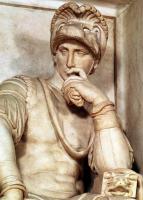Man is condemned to be free, by Jean-Paul Sarte: analysis and meaning of the phrase
"Man is condemned to be free" is a phrase by the French philosopher Jean-Paul Sartre, one of the greatest exponents of existentialism. It means that freedom is inherent in the human condition and that, therefore, man is absolutely responsible for the use he makes of it.
In this sentence, probably the most famous of Sartre's statements, some of the essential aspects of his philosophical thought, such as reflection on the human condition, the nature of freedom, and the meaning of freedom. existence.
To understand in all its dimensions what Sartre wanted to express with this phrase, it is important to point out that it is, like the whole of his work literary, critical and philosophical, ascribed to existentialism, which is a philosophical current that investigates around questions related to the life and existence, which questions concepts such as human freedom, and reflects on the scope of the individual responsibility of the man.
Existentialism, as a current of thought, began to be announced in the nineteenth century, in the thought of philosophers such as Søren Kierkegaard and Friedrich Nietzsche, who had a notable influence on the work of Sartre.
However, the traumatic events of the First and Second World Wars will give existentialism a new force within the currents of thought of humanity. It will be, therefore, in this context, in which Sartre will develop the bulk of his philosophical and literary work.
Phrase analysis
"Man is condemned to be free" is a philosophical statement that is built from an apparent rhetorical contradiction.
Let's think about the way in which the concepts of freedom are related and interact, which is associated with the ability to act and act freely, and that of condemnation, which summons the idea of prison, of non-freedom, within which, however, Sartre places, in all its dimensions, the will of man.
So what is freedom for Sartre? Why does Sartre express the idea of human freedom as a condemnation?
In the first place, it is important to note that Sartre rejected the idea that there was a higher being that determined the course of existence. Which implied that the human being was responsible for his existence, his actions and decisions, and that since there was nothing to prefigure or define his behavior, he was bound only to his elections.
Thus, for Sartre, man was the absolute responsible for himself, and, consequently, he was the one who invented himself himself, defining, through his conduct, his deeds and actions, who he was and what was the meaning of his existence.
In this way, the freedom of man, which is part of the human essence, would have expression in two dimensions: an objective one, which of him means that freedom is equally lived by all, and another subjective, according to which each one will live according to their own quirks.
In short, the existence of man, which occurs spontaneously (he did not create himself), is tied to the sum of actions and decisions that throughout his life will determine his existence, for which it is said that man is responsible for the meaning of his lifetime.
Thus, man, then, is free to act and define himself constantly, since this is inherent in his human condition, but he is obliged to choose permanently within this freedom.
The phrase "man is condemned to be free" is found in the book the existentialism is a Humanism, in which Sartre set out to make a defense of existentialism and explain it to his detractors. Originally, this book was conceived as a lecture, which was delivered in Paris on October 29, 1945. Later, in 1946, it would be published in book form.
See also
- Existentialism is a Humanism, by Jean-Paul Sarte.
- Existentialism: characteristics, authors and works.
About Jean-Paul Sarte
Jean-Paul Charles Aymard Sartre, better known as Jeal-Paul Sartre, was born in Paris, France, in 1905, and died in that same city in 1980.
He was a philosopher, writer, novelist, playwright, literary critic, and political activist. Ideologically, he stood in humanist Marxism and was one of the greatest exponents of the existentialist current.
Some of the most relevant works of him are the philosophical treatises Being and Nothingness (1943) and the existentialism is a Humanism (1946), as well as the novel Nausea (1938).
In 1964 he was awarded the Nobel Prize for Literature, but he declined it for personal convictions. He was a partner of the intellectual Simone de Beauvoir.
You may also like 7 essential works of Jean-Paul Sartre.



